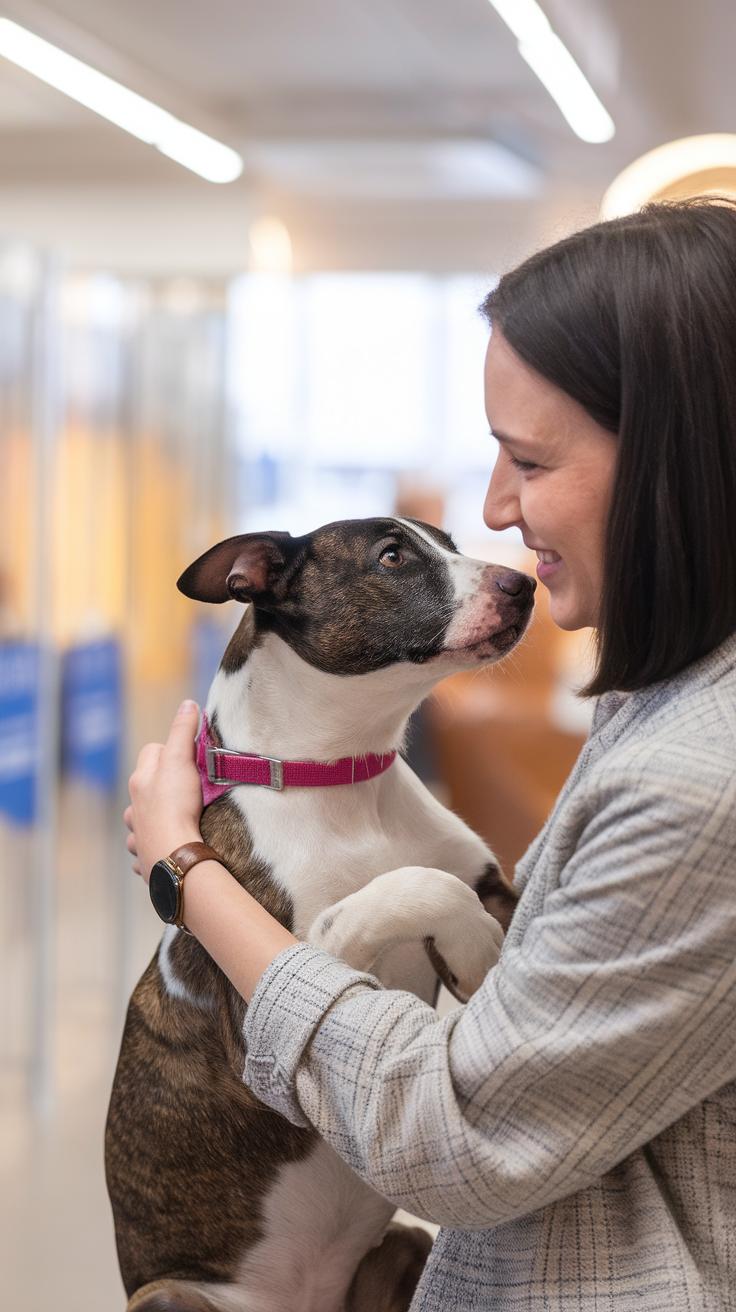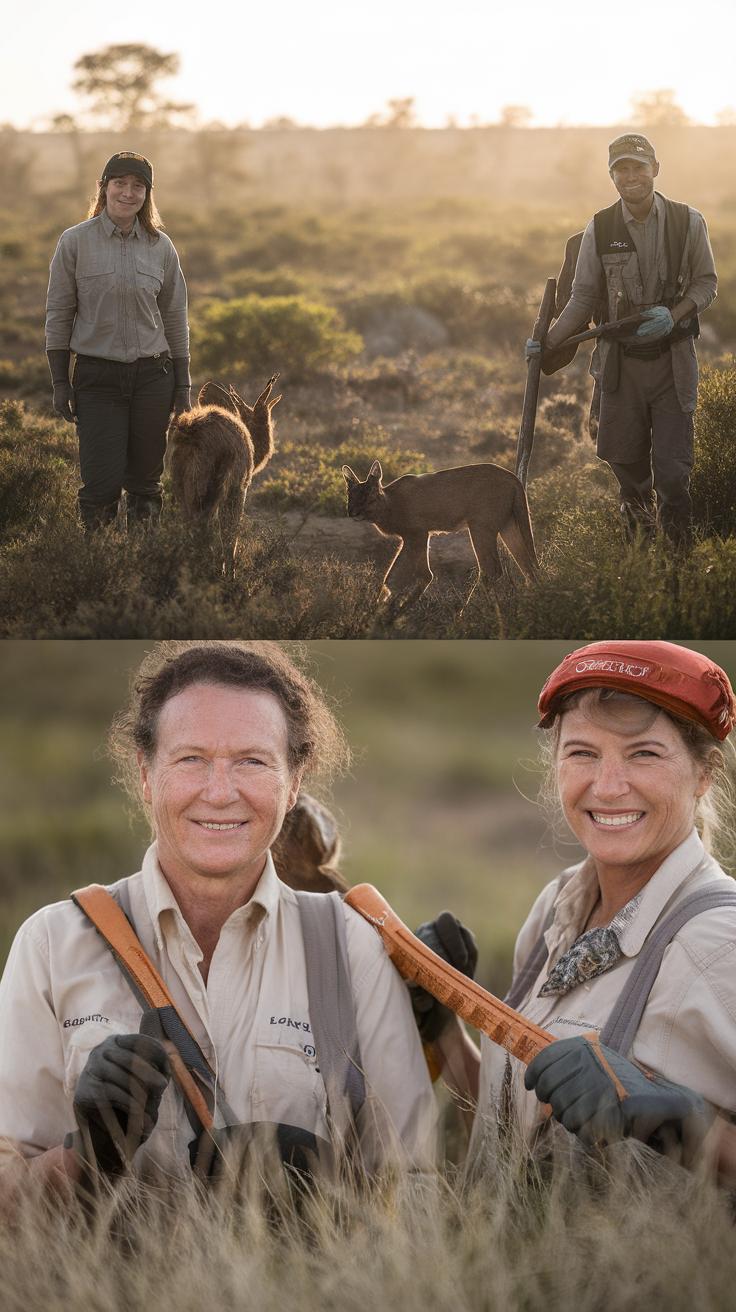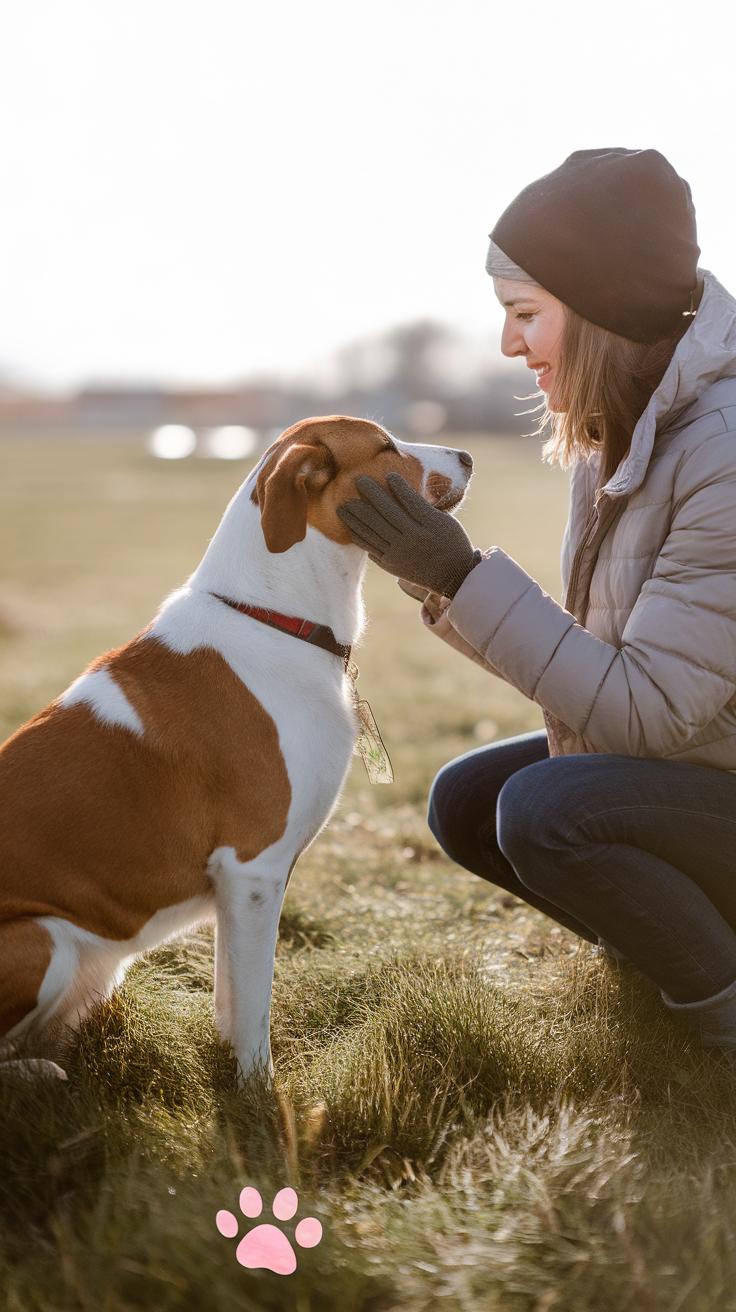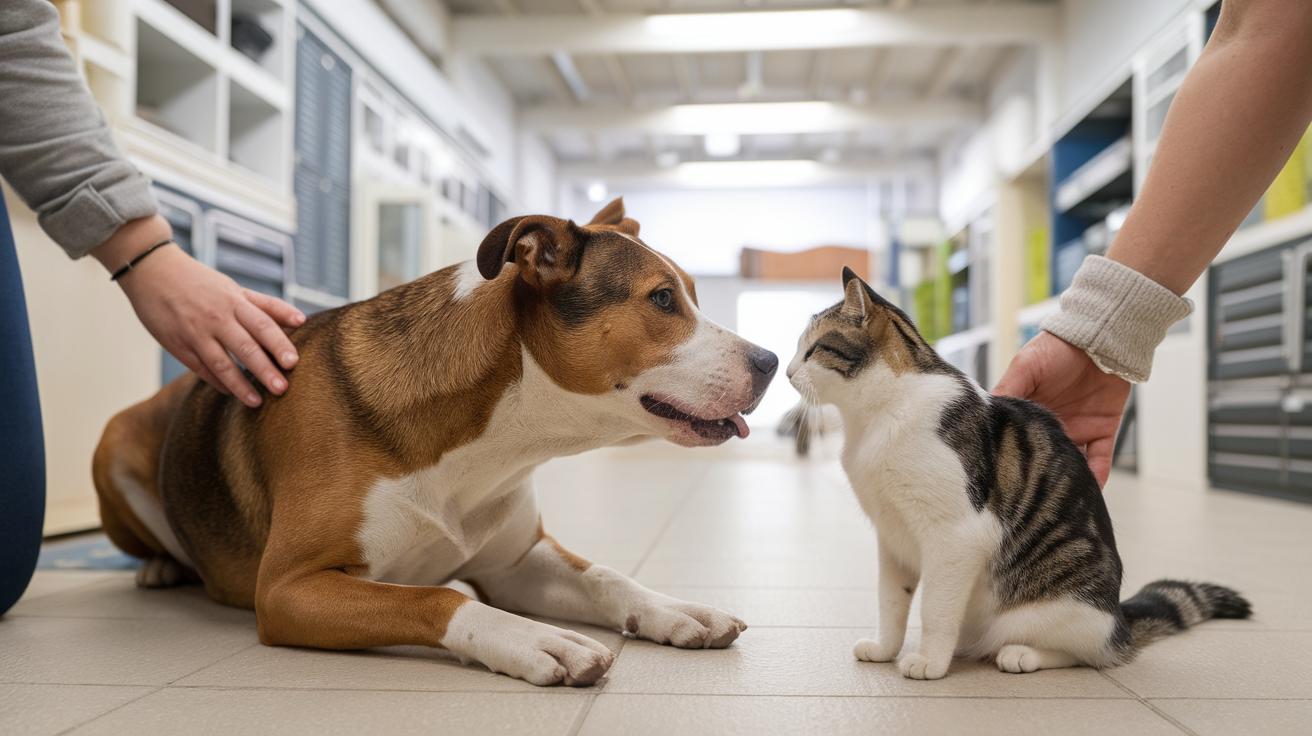Introduction
For many individuals, being an animal lover transcends merely having pets; it becomes a lifestyle choice that influences one’s values, actions, and decisions. This profound affection for animals encourages people to advocate for animal rights, rescue efforts, and sustainable practices. In a world where the interaction between humans and animals is continuously evolving, understanding how to support animal welfare and enrich the lives of these creatures is vital. Through this comprehensive guide, we will explore various dimensions of loving animals, discussing the responsibilities that come with it and the joys it brings.
This guide is not just for those with a single pet at home, but also for those passionately involved in fostering, volunteering, or participating in animal-related activities. We will cover essential knowledge about animal care, the importance of adoption, ways to volunteer, and how to engage with the community as an animal lover. By delving into different aspects of animal companionship, we aim to equip readers with information and insights that enhance their understanding and appreciation of the bond shared between humans and animals.
Understanding Animal Love The Psychology Behind Being an Animal Lover
Foundations of Affection
Animal love often finds its roots in early childhood experiences, where interactions with pets or wildlife foster a deep sense of empathy and connection. Such relationships can teach children compassion, responsibility, and nurturing, shaping their future perceptions of the animal kingdom. A child who feeds a stray cat or cares for a family dog may develop a lifelong bond with animals, reinforcing a compassionate worldview. In many ways, these formative moments act as a fundamental building block for an affectionate relationship with animals, nurturing a sense of belonging.
Innate Compassion
The innate compassion humans often feel towards animals can also be attributed to our evolutionary history. Humans have coexisted with animals for tens of thousands of years, forming symbiotic relationships that enrich both parties. This evolutionary bond instills a sense of duty to protect and cherish animals, emphasizing their importance in our lives. Psychological studies suggest that animal lovers often exhibit heightened empathy and emotional intelligence, traits that contribute not only to personal well-being but also to the broader community of animal enthusiasts.
The Joys of Pet Ownership
Owning a pet brings daily joy and companionship that enrich life in profound ways. The simple act of a wagging tail or a gentle purr can elevate one’s mood, reminding us of the comfort that comes from these loyal companions. Routine activities like walks, playtime, and feeding foster a rhythm that can ground owners, creating a sense of structure and responsibility that benefits both pet and person. The emotional connection cultivated through mutual trust often matures into a relationship that transcends the ordinary, providing not just entertainment but emotional support as well.
Responsibilities, while sometimes daunting, ultimately contribute to the fulfillment of pet ownership. Attending to a pet’s needs—be it through grooming, training, or health care—cultivates a sense of purpose and fulfillment. This commitment is rewarding, leading to a profound bond that can transform a house into a loving home. Each moment spent caring nurtures the human-animal connection, making every challenge worthwhile, as love manifests in the joy of companionship and shared experiences.
The Joys of Pet Ownership Daily Experiences and Responsibilities
Understanding the Emotional Connection
Having a pet is an enriching experience that goes beyond mere companionship; it fosters an emotional bond that rewards both the animal and owner. The gentle purring of a cat or the excited wag of a dog’s tail can brighten anyone’s day. Engaging with pets daily encourages routines that create security and joy. Imagine waking up to a eager face, ready for the day’s adventures. That sense of connection nurtures empathy, teaching important life lessons about nurturing and responsibility.
Daily Responsibilities: A Commitment to Care
The joy of pet ownership comes hand-in-hand with significant responsibilities. Caring for a pet requires time, effort, and financial investment. Feeding, grooming, and regular veterinary visits are just a few tasks that ensure a pet’s well-being. An animal thrives in a safe, loving environment where it feels secure and valued. This journey of sharing life with a pet cultivates a deeper appreciation for the nuances of animal care and the unconditional love they offer in return.
Adoption and Rescue Efforts Impacting Animal Welfare
The importance of adopting animals from shelters cannot be overstated. Each year, countless pets find themselves in need of loving homes due to various circumstances, including abandonment and neglect. Opting for adoption not only saves lives but also reduces the strain on overcrowded shelters. When individuals choose to adopt, they contribute to a cycle of compassion, giving animals a second chance at happiness and security.
Rescue efforts play an equally vital role in enhancing animal welfare. Organizations dedicated to rescuing abandoned or abused animals work tirelessly to rehabilitate and rehome them. These initiatives often provide critical medical care, food, and safety, addressing the urgent needs of vulnerable animals. Supporting these rescues through donations, volunteer work, or adopting pets fosters a nurturing community spirit essential for promoting animal welfare and advocacy.
Community Engagement as an Animal Lover Connecting with Fellow Enthusiasts
Building Your Support Network
Establishing connections with other animal lovers can significantly enhance your experience and commitment to animal welfare. Engaging in community groups, whether online or in-person, allows for shared insights and experiences about pet care, rescue efforts, and advocacy initiatives. Joining local animal organizations or attending events can foster a sense of belonging and purpose. Participating in volunteer activities not only aids rescue efforts but also cultivates friendships with like-minded individuals who share a passion for animals.
Advocacy and Support Initiatives
Collaboration within the animal-loving community is vital for effective advocacy. Organizing or participating in community campaigns for shelter adoptions, spay and neuter programs, or responsible pet ownership brings awareness and encourages collective action. Engaging in forums and workshops can provide invaluable education on overcoming challenges faced by animals in your region. Building a support network empowers individuals to become stronger advocates for animal welfare, creating a resonating impact that extends beyond personal interactions.
Wildlife Conservation and Advocacy The Role of Animal Lovers
The Importance of Wildlife Conservation
Wildlife conservation encompasses vital efforts aimed at protecting endangered species and preserving natural habitats. These initiatives are essential not only for the survival of myriad animal species but also for maintaining ecological balance. Loss of biodiversity due to habitat destruction, climate change, and poaching poses significant threats, making conservation efforts indispensable for the health of our planet. Understanding the interconnectedness of all life forms enables animal lovers to recognize the direct impact that preserving wildlife has on future generations.
How Animal Lovers Can Participate
Animal enthusiasts possess the passion and influence necessary to drive change in wildlife conservation. Volunteering for local or global conservation programs allows individuals to contribute hands-on support. Fundraising, awareness campaigns, and educational workshops serve as excellent platforms to engage others in advocacy efforts. Additionally, fostering partnerships with organizations dedicated to wildlife protection amplifies the collective voice necessary for impactful change. By participating in these initiatives, animal lovers can transform their genuine affection for animals into meaningful action, fostering a more sustainable future for all living beings.
Caring for Aging Pets Compassionate Considerations for Animal Lovers
Understanding the Needs of Senior Animals
Caring for aging pets presents unique challenges that require a deep understanding of their physical and emotional needs. As pets age, they may face various health issues, such as arthritis, dental problems, or cognitive decline. Animal lovers must recognize these challenges and be prepared to adapt their care routine. Routine veterinary check-ups become increasingly important to ensure that aging pets receive proper medical attention. Developing a tailored diet that supports their changing nutritional needs can also significantly enhance their quality of life.
Creating a Comfortable Environment
Ensuring a safe and comfortable environment for aging pets is essential. Incorporating soft bedding, non-slip mats, and easily accessible food and water can alleviate physical discomfort. Adapting daily activities to suit their energy levels promotes a sense of security. Offering plenty of love and patience during this time allows aging pets to feel cherished while navigating their twilight years. Compassionate care fosters a deeper bond, highlighting the profound connection shared between animals and their human companions.
Animal Behavior and Training Enriching the HumanAnimal Bond
Understanding Animal Behavior
Grasping the fundamentals of animal behavior is vital in building a respectful and empathetic relationship with pets. Animals communicate through body language, vocalizations, and even facial expressions, revealing their feelings and needs. Observing these signals enables pet owners to respond appropriately, ensuring a harmonious living environment. Knowing common behaviors, such as tail wagging in dogs signifying happiness or slow blinking in cats expressing trust, can deepen the bond between human and animal. Additionally, recognizing stress signs, like excessive scratching or hiding, illustrates a pet’s emotional state, allowing owners to implement measures for comfort.
Effective Training Techniques
Training pets effectively involves understanding their motivations and using positive reinforcement strategies. Reward-based training, where praise or treats are given for desired behaviors, enhances learning and promotes a stronger bond. Consistency is critical; consistent commands and routines help pets understand expectations, fostering security and mutual respect. Socialization also plays a pivotal role in training, exposing animals to various environments and experiences. This not only builds their confidence but also cultivates desirable behaviors, minimizing fear and anxiety. Ultimately, a well-trained pet contributes to a fulfilling partnership, enhancing the joy experienced by both companions.
The Role of Animals in Therapy A Deeper Connection to Human Health
Therapeutic Benefits of Animal Companionship
The incorporation of animals in therapeutic settings has gained recognition for its significant influence on mental and physical well-being. Interaction with animals can promote emotional healing, reduce stress, and alleviate symptoms of anxiety and depression. Animals possess an innate ability to foster feelings of comfort and trust, making them ideal companions in therapy. For individuals facing mental health challenges, the simple act of petting a dog or cat can lead to the release of oxytocin, often referred to as the “love hormone,” which enhances mood and overall psychological resilience.
Wide-ranging Applications in Therapy
Animal-assisted therapy is now utilized across various fields, including rehabilitation, grief counseling, and the treatment of PTSD. Programs are designed to meet diverse needs, with therapists collaborating with trained therapy animals to provide tailored support. The presence of animals can motivate patients to engage in therapy, harvesting a unique bond that promotes healing. This practice underscores the vital role of animals within therapeutic environments, enriching the human-animal bond while addressing emotional and physical health challenges effectively.
Advocating for Animal Rights
The Responsibility of Animal Lovers
Being an animal lover goes beyond a simple affection for pets or wildlife; it encompasses a broader responsibility to advocate for animal rights and welfare. Caring for animals often means ensuring their protection from cruelty, exploitation, and neglect. This advocacy involves educating others about the conditions animals face and pushing for legislation that safeguards their well-being. Each voice contributes to a collective effort aimed at creating a world where animals are treated with respect and dignity.
Engaging the Community
Mobilizing communities can foster an environment where animal welfare becomes a societal priority. Animal lovers can participate in local initiatives, volunteer at shelters, or partner with rescue organizations. By forming networks of like-minded individuals, they can amplify their efforts to bring about change. This sense of community can also inspire compassionate action, encouraging individuals to adopt ethically sourced animals and support cruelty-free products. Every effort, no matter how small, can make a significant impact on the lives of animals everywhere.
Conclusions
The journey of being an animal lover is filled with joy, responsibility, and a deep connection to the lives we share this planet with. The impact of kindness towards animals extends beyond personal satisfaction—it contributes to broader efforts in promoting animal welfare and responsible ownership. Whether one is a seasoned pet owner or a novice looking to adopt, expanding your knowledge and nurturing your passion can significantly enhance this rewarding experience.
By embracing the various ways to engage with animals, including volunteering and advocating for their needs, every animal lover can make a difference. This guide has served as a valuable resource to inspire and inform your path as an animal lover. Together, let us foster a culture of compassion that celebrates our bond with animals and promotes a world where all creatures can lead happy, healthy lives.


















